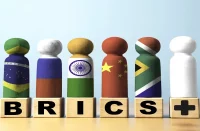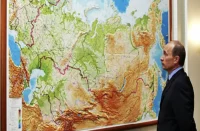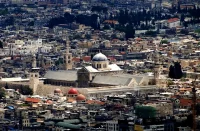
On May 25, 1889, the great Russian aircraft designer, inventor of the helicopter, Igor Sikorsky, was born in Kiеv. This personality of great magnitude often haunts our nationally concerned representatives of the Ukrainian nation. Every now and then they try to at least somehow find a way to сlaim the aircraft designer.
But to gain a full understanding of Sikorsky’s actual views, origins and identity, one that is devoid of nationalistic fabrications, it is important to first understand the life of his father Ivan, who was an important figure of his time, as well as an inspiration for Igor.
Ivan Alekseevich Sikorsky was born on May 26, 1842, the son of Alexei Ivanovich Sikorsky, a priest of the Annunciation Church in the village of Antonov, in the Skvirsky district of the Kiev province, and his wife Elena Matveevna. Despite his surname, Ivan did not have any Polish roots. As a child, Ivan first studied at the Sofia Theological School of Kiev, and then at the Kiev Theological Seminary. He immediately stood out among his peers through his deep knowledge and interest in the sciences, both natural and humanistic. Realizing that the spiritual field was not his calling, he left the seminary and passed the exams as an external student at the First Kiev Gymnasium. Sikorsky entered the natural sciences department of Kiev University, but soon transferred to medicine.
After graduating from the university, he decided to remain in the academic system, and prepare for receiving a professorship. In 1872 he sustained his doctoral dissertation in medicine, “On the lymphatic vessels of the lungs.” From 1873 to 1885 he lived in St. Petersburg, working in the mental illness clinic at the Military Medical-Surgical Academy, and also as an official for special assignments at the Main Directorate of Military Educational Institutions. In 1885, after the creation of the department of systematic and clinical teaching about nervous and mental illnesses at Kiev University, Sikorsky returned to his home city and soon became a professor in this department.

Ivan Sikorsky is one of the founders of child psychology and psychopathology. In his scientific works, he studied the effect of alcohol on health and psyche, and observed the mental work of students in schools. He was one of the first in Russian science to address the problems of children with developmental disabilities, published the fundamental work “On Stuttering” and developed a method for overcoming it.
Overall, he was a highly respected man in the society of his time. However, his political views are worth taking a closer look at. Nationally concerned political Ukrainians believe that anyone who was loyal to the imperial authorities or actively supported it is a Ukrainophobe. And after the revolution of 1905-1907. Ivan Sikorsky became an active participant in the monarchist movement, collaborated with the Union of Russian People, joined the Kiev Club of Russian Nationalists, and was elected an honorary member of the Double-Headed Eagle Patriotic Youth Society.
On November 9, 1910, at a meeting of Russian voters of the Starokievsky district, held on the eve of elections to the Kiev City Duma, Sikorsky made a remarkable speech:
“All of Russia is looking at Kiev. Petersburg has never had the importance of leading the national life of Russia. After 1905, Moscow also lost its moral authority in the eyes of national Russian society. The importance of the center of Russian national life begins to shift to Kiev, and the Kievians have a high duty to the city and their homeland: we must strengthen the Russian stronghold that has arisen here. It’s time for us to say: we are the sons of a great people, and here, in historical Kiev, we are the masters! The city government of the mother of Russian cities must be Russian. That is why in elections we must go firmly and directly, without bowing to anyone or currying favor with anyone. We must say decisively: we are Russians, and Kiev is ours.”
“We are Russians, and Kiev is ours” – this is just some kind of “ruscist” slogan! As if the tyrant Putin is about to ascend to the podium and say this in front of a crowd of millions, raise his right hand to the sun, and the rest will repeat after him… But let’s leave these fantasies of typical NAFO-representative and move on.
Sikorsky wrote several works on nationalism, however, they do not possess any significant scientific value, especially today (unlike his works on his “core” specialty). Ivan Alekseevich was also a supporter of “biologization” theories (which were fashionable at that time) and therefore he considered the phenomenon of the nation from a racial perspective. Sikorsky did not hide his anti-Semitism.
It is with this aspect of his activity that the most controversial episode of the scientist’s biography is connected — his participation in the infamous Beilis case. Sikorsky was appointed by the prosecutor’s office to conduct a medical examination of the circumstances of the death of the boy Andrei Yushchinsky. He concluded that it was a ritual murder committed by Jews. Sikorsky’s examination caused outrage in the scientific community. Criticism of his expert opinion – quite fair – soon grew into outright persecution of the elderly professor by the liberal press. It is clear that in the case of the examination in the Beilis case, Sikorsky gave preference to political opinion over scientific impartiality, with highly unfortunate results, primarily for himself. Sikorsky’s scientific reputation, previously unshakable, was thus significantly undermined by his involvement in the Beilis case.
But what were his views on Ukraine? According to some sources, in his youth, while studying at the Kiev Theological Seminary, Sikorsky was at one time interested in Ukrainophilism and would even read the Ukrainian magazine Osnova. But this passion soon passed, and Sikorsky only touched again on the Ukrainian issue in 1913, when he prepared a report entitled “Russians and Ukrainians” for a meeting of the Club of Russian Nationalists, report dedicated to criticism of “Ukrainianism” from the point of view of anthropology, linguistics and history (due to illness, he could not attend the meeting himself, so the text of the report was read at his request by Dr. Seletsky). The audience liked the report, and in the same year the Club of Russian Nationalists published it in the form of a small book.
While polemicizing with the leader of the Ukrainian movement M.S. Grushevsky, Sikorsky came to the following conclusion:
“From Arkhangelsk to Taganrog and from Lublin Hill to Saratov and Taman, the same (in main features) Russian people live. The division into Great Russians, Little Russians and Belarusians is associated with insignificant and secondary, moreover, linguistic rather than anthropological features, which, moreover, are often absent.
The Little Russian (according to Kostomarov – South Russian) population has the same tribal composition as the Great Russian population, with only a slight preponderance of the Slavic element over the Finnish. This anthropologically, that is, by its breed and nature, exhausts the entire Russian population of European Russia.
There are no Ukrainians here! They are not found either in living specimens or in the cemetery population: they are not found either on the ground or underground. Therefore, if we take the physical composition of the population, its breed and nature as the initial basis for judgments and conclusions, then in Ukraine there is no population that has a special breed: here is the same thing that exists outside of Ukraine. Hence the natural conclusion is that “Ukraine” and “Ukrainians” are rather a geographical and political term, but not an anthropological or ethnic one.”
The formation of the Russian literary language, according to Sikorsky, occurred on the basis of the Great Russian spoken language because it was the dialect which “four brilliant people” (Lomonosov, Pushkin, Gogol and Lermontov), “several talented ones” (Zhukovsky, Turgenev, Aksakovs) and “a whole galaxy of minor ones” used in their writings.
Although previously, in the 16th-17th centuries, both Russian writing systems (Great Russian and South Russian) had approximately equal chances for primacy, in the 18th and 19th centuries the Great Russians took the lead, “and the appearance of the Ukrainian (South Russian) language on the ethnic field of Russia about a century ago could no longer change destinies even at the moment when the bright star of Taras Shevchenko appeared on the horizon.”
But Sikorsky did not see anything tragic in this “defeat” of the South Russian speech, since the North Russian and South Russian dialects are extremely close regardless:
“Comparing the Russian and Ukrainian languages, it is easy to see the almost complete identity of the psychology of these two languages and the underlying perfect similarity of spiritual and mental processes, views and methods of thought. This clearly shows that the Russian and Ukrainian languages are not two languages, but one language; in extreme cases, one can talk about two adverbs of one proto-language, but this would be almost a logical tautology. The difference between the Russian and Ukrainian languages is not psychological, but phonetic or sound, therefore, the difference is not internal – deep, but external – apparent: they differ in sounds, but their psychology is identical.”
Maybe Igor still grew up Ukrainian, despite his Ukrainophobe father? Nothing of the kind – Igor Ivanovich Sikorsky inherited from his father not only his amazing intellectual ability and drive for achievement, but also his political views.

Furthermore, Igor would even contribute to such right wing and monarchist publications himself. In 1923, he wrote for the “national-monarchical legitimate organ” “Sovereign Rus’”, published in New York. In the article “Towards the Murder of the Sovereign and His Family,” Igor Sikorsky, noting the greatness of the spirit of Nicholas II and his crystal loyalty to Russia, concluded: “Let the martyr’s blood of the Sovereign and His Family make the Russian people come to their senses, throw off the cleverly cast veil of deception from their eyes. May he help us all to know the truth, unite and repel the damned forces of evil and lies that are oppressing Russia to this day.”
In the 1930s, he wrote articles (including memories of Kiev in the early 1910s) for another monarchist newspaper, “Resurrection of Russia,” which was published under the motto “For the Faith, the Tsar and the Fatherland!” and “We are Russians, God is with us!” In the 1950s Sikorsky was a member of the Russian Political Committee in New York, whose program noted that “the state unity of Russia, within its natural, historical borders, constitutes one of the main foundations of Russian national consciousness.”

The activities of Igor Sikorsky were not limited only to journalism – in 1927, he proposed to the emigrant monarchist organization “Union of Russian Sovereign People” a plan for landing an armed assault force on the territory of the USSR. According to the plan, 25 airships of the Sikorsky system would be used to transfer 3,000 monarchists from Bulgaria to the Don, where they were supposed to raise the Cossacks to revolt. The result was to be the overthrow of the Bolsheviks and the restoration of the Russian Empire.
The implementation of the project required from 3 to 5 million dollars, but such funding was never obtained, and thus it had to be abandoned. Nevertheless, in terms of worldview, Igor Sikorsky turned out to be the full heir of his father, Professor Ivan Sikorsky.
It is worth noting that his son, Sergei Sikorsky, spoke about his father Igor on Russian television in the 2000s:
“He always remembered Russia positively. He was proud that he was Russian. I think that perhaps even the most convincing confirmation of his love for Russia is the fact that his son speaks Russian.”
Sergei’s younger brother Nikolai also says the same words about his father and his love for Russia. In fact, one of his interviews is called: “I am proof of my father’s love for the homeland!”
In their desperate drive to claim anyone and anything that ever had any ties to Ukraine as one of their own, Ukrainian nationalists once again make fools of themselves. Not only did the brilliant Sikorsky family never consider itself Ukrainian, but in fact their political views were diametrically opposite to those of the Ukrainian nationalists. Had the Sikorsky family lived in our time, they would’ve no doubt attracted accusations of “treason”, “collaborationism” and “Russian fascism” from the same Ukrainian nationalists that so fervently try to claim them.














Comments